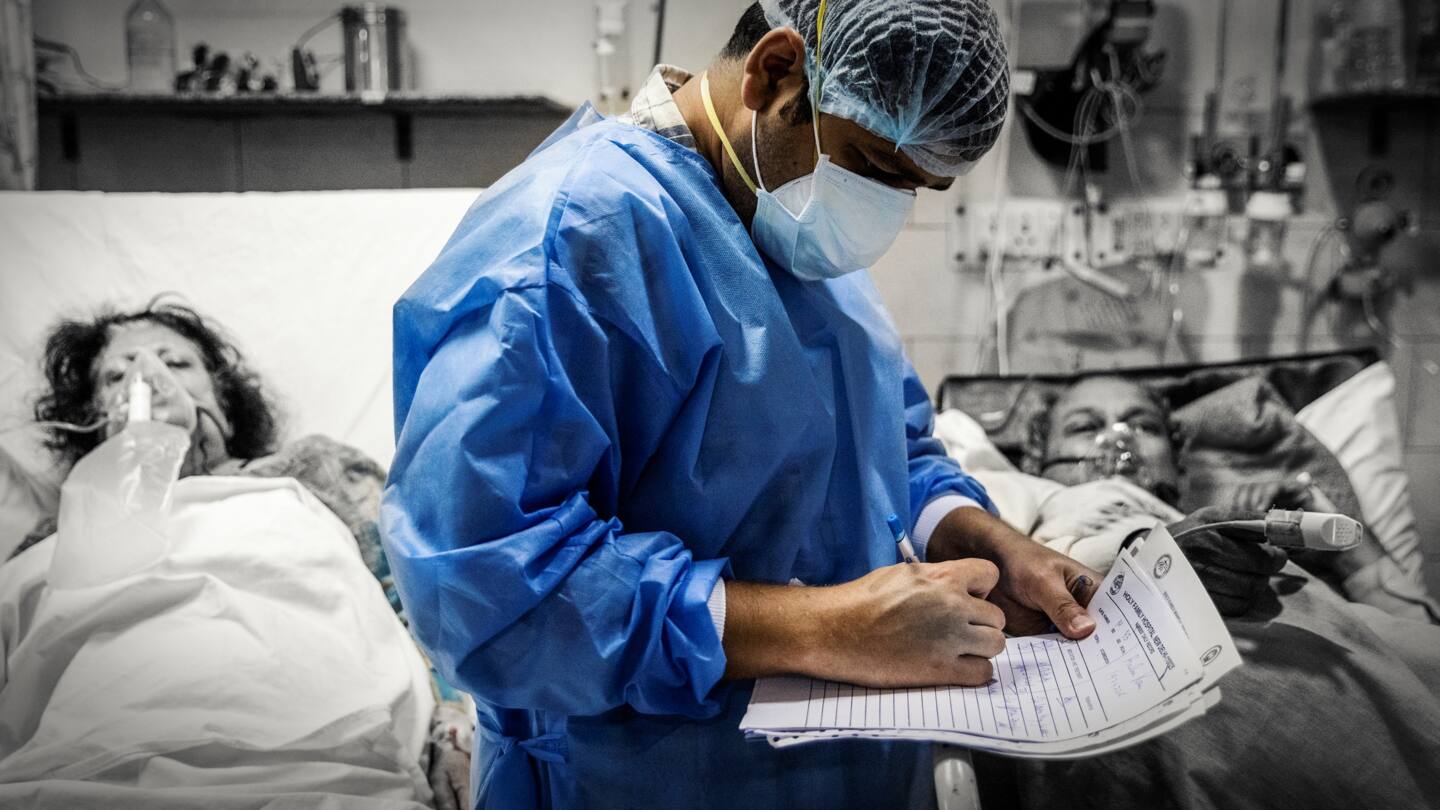
Coronavirus: India reports 2,000+ deaths as MP adds backlog data
What's the story
India on Tuesday reported over 31,000 new COVID-19 cases along with over 2,000 fresh fatalities.
While the number of single-day infections marked the lowest jump in 118 days, the sharp rise in the fatality count is attributed to Madhya Pradesh, which reconciled data and announced 1,481 more deaths which occurred till June 30 during the second wave.
Here are more details.
Statistics
India's tally reaches 3.09 crore; 4.1 lakh dead
According to the Union Health Ministry, till Tuesday morning, India reported a total of 3,09,05,819 COVID-19 cases. The death toll has reached 4,10,784.
So far, 3,00,63,720 patients have recovered, while 4,32,778 cases involve active infections.
In the past 24 hours alone, India recorded 31,443 new infections, 49,007 more discharges, and 2,020 fresh fatalities.
38,14,67,646 vaccine doses have been administered so far.
Trend
Second wave peaked early-May
India's second wave peaked on May 7, when 4.14 lakh single-day cases were reported, over four times the number of cases reported during the first wave in mid-September 2020.
Although infections have declined since the second wave peaked, India crossed the three crore-mark on June 23.
India had crossed the one crore-mark on December 19, 2020, and the two crore-mark on May 4, 2021.
States
49% new cases concentrated in Kerala, Maharashtra
Maharashtra reported 7,603 new COVID-19 cases along with 15,277 more recoveries.
Kerala, the second worst-hit state after Maharashtra, reported 7,798 new cases and 11,447 discharges.
Meanwhile, the third worst-hit Karnataka added 1,386 new cases and 3,204 recoveries.
Tamil Nadu, the fourth worst-hit state, reported 2,652 new cases and 3,104 recoveries.
Andhra Pradesh reported 1,578 new cases and 3,041 recoveries.
Third wave
Experts warn against 'imminent' third wave
The Indian Medical Association on Monday warned against tourism and pilgrimage as a "third wave" of COVID-19 is imminent.
Notably, a study indicates that Kerala and Maharashtra have seen an increase in the 'R' factor, which indicates how many people one person can infect.
Maharashtra's spike is worrying experts as the state led the rise in infections during both the first and second waves.
Vaccine
Bit of a dangerous trend: WHO scientist on mixing vaccines
Separately, the World Health Organization's Chief Scientist Dr. Soumya Swaminathan cautioned against mixing vaccines.
"It's a little bit of a dangerous trend here. We're in a data-free, evidence-free zone as far as to mix and match," she said, "It will be a chaotic situation in countries if citizens start deciding when and who will be taking a second, a third, and a fourth dose."